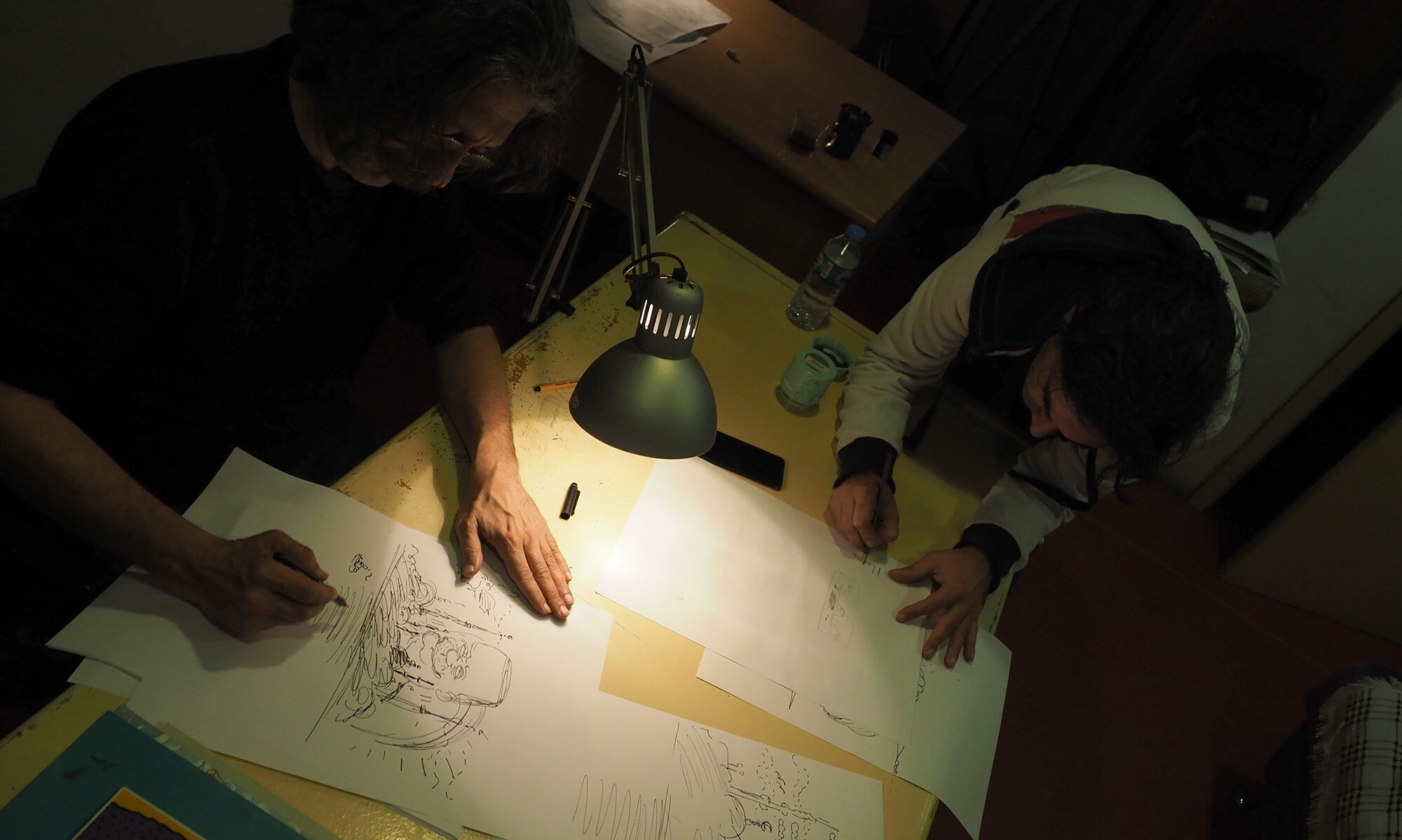 A row house in a leafy suburb in Fairfax County, Virginia, is the unlikely nerve centre for a global resistance movement against cartoon censorship. This is the home of Robert “Bro” Russell, founder of Cartoonists Rights Network International (CRNI).
A row house in a leafy suburb in Fairfax County, Virginia, is the unlikely nerve centre for a global resistance movement against cartoon censorship. This is the home of Robert “Bro” Russell, founder of Cartoonists Rights Network International (CRNI).
I paid him a visit in October 2018 because there are few people in the world whose radars are as finely tuned to cartoonists under threat. Russell set up CRNI to defend the creative freedom and human rights of cartoonists around the globe. It monitors threats and abuses against editorial cartoonists, and tries to bring international pressure on their persecutors.
CRNI has cartoonists on its board, but Russell himself is not one. His background is in international development and education. And it’s his experience with international donors and aid projects that made him realise what’s so special about cartooning. “Political cartoonists are the most cost effective change agents in a society,” he says. The low-cost craft of cartoons can transform the way people look at the world and even bring down corrupt governments.
But the primitivity of their enterprise also makes cartoonists unusually exposed to attack. In 1992, Russell met Sri Lankan cartoonist Jiffry Yoonoos, who was being targeted by the regime of President Pranasinghe Premadasa. The cartoonist’s only plea was that someone look after his children if he was killed. Yoonoos and Russell went on to create the Cartoonist Relief Network, which evolved into CRNI.
“They don’t have the same systems of defence that many journalists would have,” Russell notes. “A journalist might be a full-time employee with a newspaper, protected by the newspaper’s policies, and the publisher or the editor will stand behind you, make sure you get a lawyer.” This is only true of some cartoonists. Most are not on staff with any news organisation; they are piecemeal workers. “You come in the morning, you turn in your cartoon, the editor looks at it, pays you your five bucks and you go home. In many developing countries, cartoonists are much more vulnerable.”
In some countries, cartoonists are not admitted into or cannot afford to join the national journalist association, denying them the protection that comes with professional solidarity.

Russell describes the many ways in which cartoonists in authoritarian societies are pressured to toe the line. “It starts subtle; it starts peaceful; it starts friendly,” he notes.
It could be an acquaintance or colleague passing the message that somebody high up doesn’t like your cartoons, and maybe you should tone down.
Then, it could be an invitation to tea or coffee, for a chat with security officers in plain clothes. That’s when you really know people are getting upset and that you are being watched.
Next, charges could be brought against you. “Maybe it’s not a physical threat. But suddenly you’re tied up in court.” In many cases, the government knows it does not have a case and that the cartoonist may eventually be acquitted. But in the meantime, you will be arrested and have to endure a long, uncertain process.
I recall what an Indian activist once told me about the use of court processes against journalists: the process is the punishment.
“It works, it works wonderfully,” Russell says of the authorities’ legal tactics. “They know they have no footing and they don’t care. They have orders to shut this guy up.”
Then, the mind games start in earnest. “When this process begins, then you start seeing who your friends are. People back pedal and distance themselves from you.”
Even family members can start backing off, especially those who have “always told you not to do this stuff; you’re putting the family in danger; you’re not even earning very much money”.
“You suddenly find yourself isolated, and you’re traumatised and you’re in court, and you don’t know who you can turn to and trust. This is like shunning, you’re being shunned. Fundamentalists shun people who start stepping outside of the boundary of the church, and this what happens to many cartoonists. They start being shunned by their own society, by their own community, by their own family.
“This is horrible, this is when you start to panic, and you start to feel helpless. You can’t think straight, you can’t strategise straight.”
CRNI’s efforts to help cartoonists in trouble seems to be modelled on Russell’s characterisation of cartoonists themselves — the organisation is small and lean, and aims to deliver bang for the buck.
In January 2019, it was one of four free speech campaigners shortlisted for Index on Censorship’s Freedom of Expression Awards Fellowships. Here’s what Index on Censorship says about it:
“Cartoonists Rights Network International (CRNI) is a small organisation with a big impact: monitoring threats and abuses against editorial cartoonists worldwide. Marshalling an impressive worldwide network, CRNI helps to focus international attention on cases in which cartoonists are persecuted and put pressure on the persecutors. CRNI tracks censorship, fines, penalties and physical intimidation – including of family members, assault, imprisonment, and even assassinations. Once a threat is detected, CRNI often partners with other human rights organisations to maximise the pressure and impact of a campaign to protect the cartoonist and confront those who seek to censor political cartoonists.”
– Cherian George interviewed Rob Russell as part of research for the book, Red Lines.

